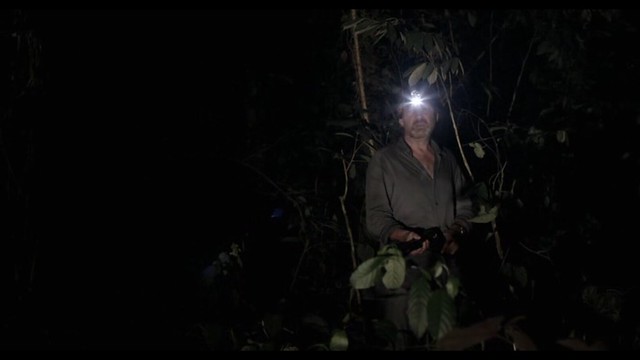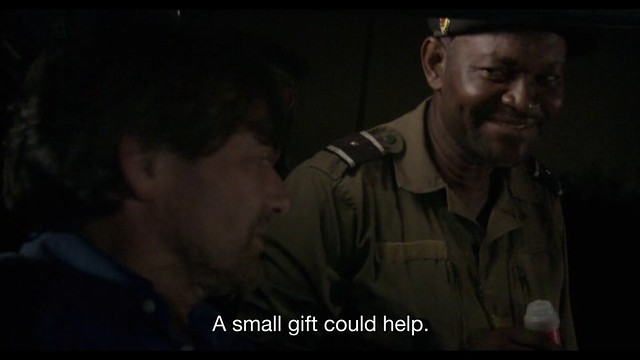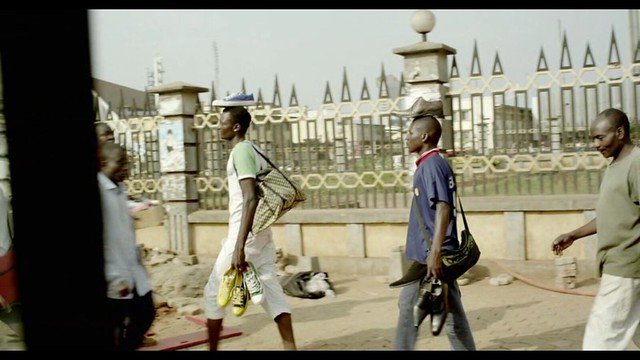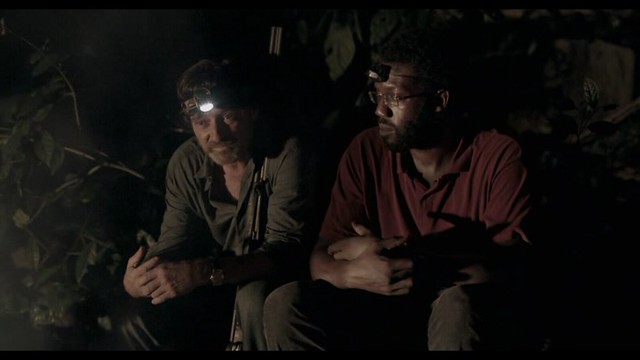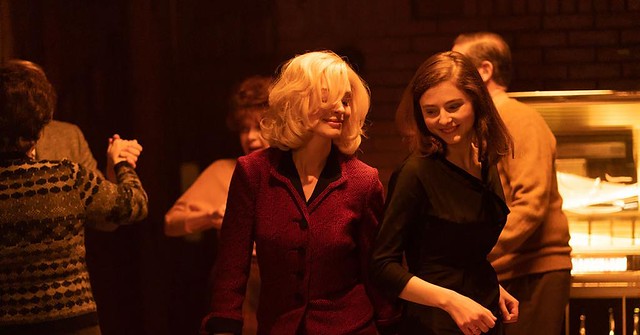 Based on award winning novel of the same name by Ottessa Moshfegh (who also wrote the screenplay with her husband Luke Goebel) and directed by British director William Oldroyd (The Lady Macbeth), Eileen tells an oddly satisfying tale of a young woman's emancipation from her dreadful surroundings.
Based on award winning novel of the same name by Ottessa Moshfegh (who also wrote the screenplay with her husband Luke Goebel) and directed by British director William Oldroyd (The Lady Macbeth), Eileen tells an oddly satisfying tale of a young woman's emancipation from her dreadful surroundings.
Thomasin McKenzie (Jojo Rabbit, Last Night in Soho) plays the title role, a young woman working in a juvenile detention center in a depressed New England town in the 60s. It's winter. The film doesn't waste any time to establish that Eileen is a loner and sexually frustrated, as she is seen masturbating in her dad's beat up old car on the lover’s lane, while peeping at others making out in another car, parked close to hers. At work, he also fantasizes about a detention center guard wildly groping her against the glass window. At home and work, she is considered an odd duck, who doesn't have any prospect in love and life in general. Her Alcoholic father, a retired cop (Shea Whigham), tells her that she is "one of them in the movies in the background, of no consequences," that she will amount to nothing.
Things change when a Harvard educated, new psychiatrist, Rebecca (Anne Hathaway) shows up at the prison. With no friends among colleagues, Eileen is smitten by this beautiful older woman who seem to command her life and those around her so effortlessly. They share the same interests in the case of Lee Polk, the boy who stabbed his father to death. Why would anyone want to kill their father? Rebecca asks Eileen. Wouldn't anyone? She answers, somewhat surprising the psychiatrist. When Rebecca asks her for a night out at a local dive, excited Eileen dolls herself up in her mom's clothes. The night of drinking and dancing and the kiss on the lips, seals the deal for the spell and obsession to set in.
Eileen finds herself the next morning in her own vomit and still dressed in mom's clothes in the car which crashed into a tree in front of her house. After a shouting match with dad, he finally concedes that he finds her more interesting than before.
Things take a darker turn when Rebecca calls to spend Christmas Eve with her. When all dolled up Eileen gets to the house, and after a warmup with some wine with stale cheese and pickles, Rebecca tells her that the place is the Polk house and she tied up Mrs. Polk in the basement. Apparently, the Polk boy killed his father after years of sexual abuse and the mother was complicit. Rebecca can't afford to go to jail for assault, so Eileen needs to help her to get a confession out of the mother as a witness. At first, Eileen is disappointed and repulsed by the whole scene, but still decides to help Rebecca, her object of desire.
With eerie score by Richard Reed Parry of Arcade Fire and decidedly old-fashioned title sequence, framed 1:66 ratio, Eileen sets the unsentimental, natural, grainy tone of the film very early on. There are some fantastical spurts of violence, like Eileen shooting herself with her father's gun, is reminiscent of the humor from Lindsay Anderson and British Kitchen Sink Realism days, rather than more contemporary tongue-in-cheek way for cheap laughs.
Oldroyd again, delves into a strong female character with Eileen as he did so in his feature debut The Lady Macbeth which made Florence Pugh a star. This time the character arc is reversed. Instead of the main character being trapped in her own scheme, Eileen in an odd and unique way, makes herself free. Thomasin McKenzie finds herself playing a role in a psychosexual thriller again. Looking like young Jodie Foster, she kills (literally and figuratively) as a woman stumbling her way through finding herself in the world, all by herself. Hathaway is a smart blonde femme fatale, doing her best Cate Blanchett impression with ease.
Eileen is much more than what I described in the plot above. Oldroyd, with the help of Moshfegh and Goebel and a talented cinematographer Ari Wegner (The Lady Macbeth, The Power of the Dog), explores surviving physical and emotional abuse that women had to endure in the 60s and finding out who they are by themselves, very subtly and skillfully.
Eileen opens in theaters this Friday, via Neon, 12/1


